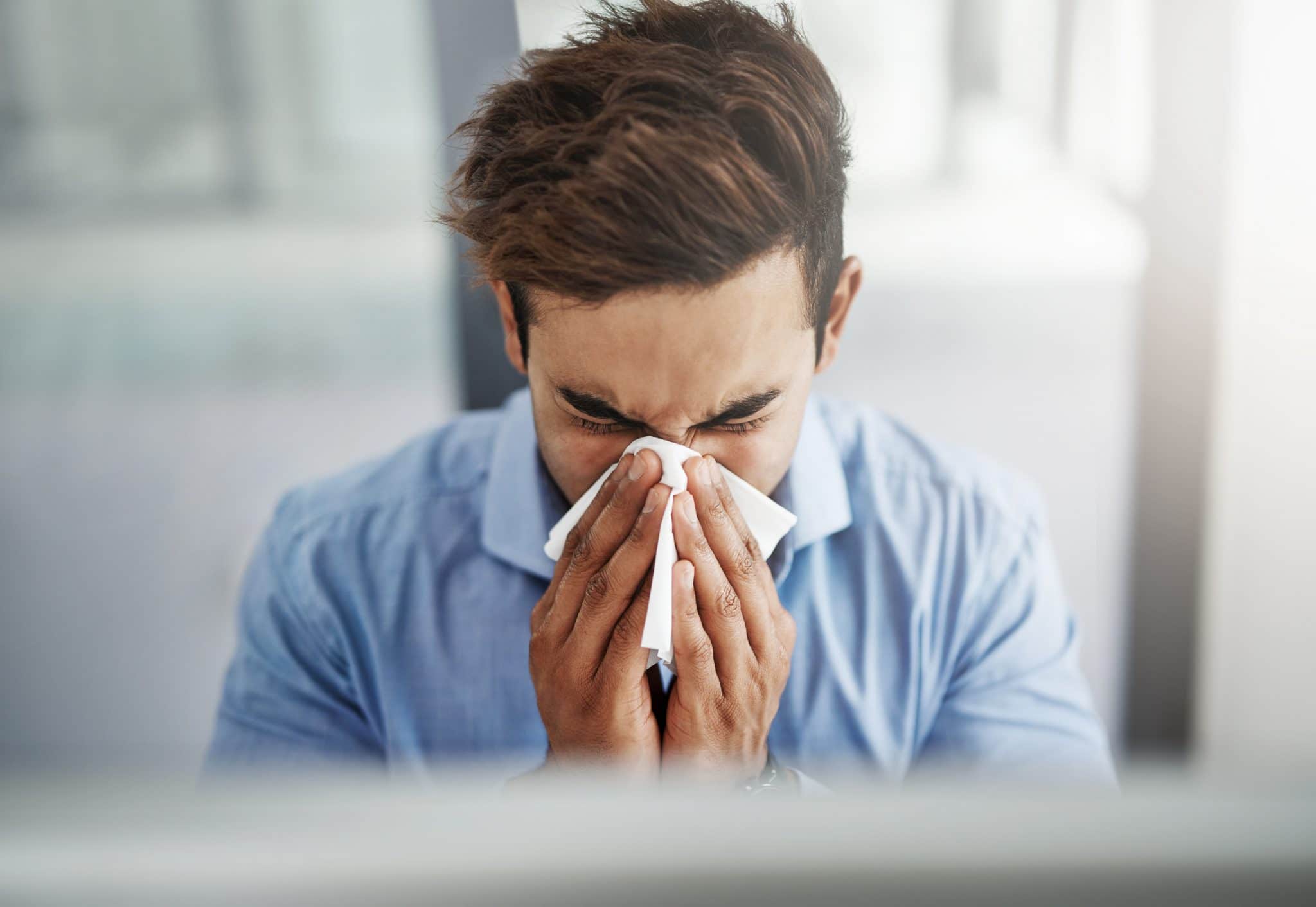If you’re feeling under the weather, you’ll do what you can to try and feel better. But how you do this depends on what exactly is wrong. If it’s allergies, you’ll take an antihistamine, and if it’s a cold you’ll take some over-the-counter cold and flu medicine from Herold’s Pharmacy. Below we cover the causes of allergies and colds and how to tell the difference between them.
Causes of Allergies

Your immune system works to protect your body from diseases, viruses and infections. But for people with allergies, their immune system mistakes harmless substances as dangerous intruders and overreacts.
In order to fight off the intruder, your immune system releases antibodies called Immunoglobulin E (IgE), which causes your cells to release histamine. Histamine increases your mucus production and causes swelling and itching, triggering allergy symptoms.
Causes of a Cold
Colds are caused by viruses. There are hundreds of different viruses that can get you sick, the most common being a family called rhinoviruses. You can pick up a virus by being around an infected person when they cough, sneeze or shake your hand.
Symptoms of Colds and Allergies
Both allergies and a cold can cause:
- Runny nose.
- Congestion.
- Sore throat.
- Cough.
- Fatigue.
How to Tell the Difference
There are several ways you can tell the difference between allergies and a cold:
- If you have puffy, itchy, watery eyes, you likely have allergies.
- If your symptoms have lasted more than 10 days, it’s most likely allergies.
- If your symptoms only occur in certain situations or at certain times, it’s probably allergies.
What About COVID-19?
According to the CDC, the most common symptoms of COVID-19 are:
- Fever or chills.
- Cough.
- Shortness of breath/difficulty breathing.
- Fatigue.
- Muscle/body aches.
- Headache.
- New loss of taste/smell.
- Sore throat.
- Congestion/runny nose.
- Nausea/vomiting.
- Diarrhea.
If you’re exhibiting any of these symptoms, you should contact your doctor to determine if you should get a COVID test. If it’s positive, be sure to self-isolate to prevent the spread. If it’s negative, you can determine what’s causing your symptoms and seek the appropriate treatment. For more information or to schedule an appointment, call Charleston ENT & Allergy today.
